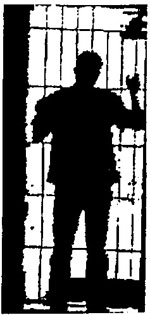Michael Uth is a member of the ACLU of Ohio Board of Directors.
So far, all the news and commentary surrounding the police killing of Michael Brown in Ferguson, Missouri have overlooked the biggest reason why incidents like this continue to occur time after time in city after city. The reason is the War on Drugs.
The police attitudes and behaviors that have alienated so many communities of color, and led to situations like that unfolding now in Ferguson, have been shaped for decades by the inherent necessities of drug prohibition. Unlike other crimes, drug crimes have no victims, only willing buyers and sellers. That makes it harder for the police to identify perpetrators. They have to use intrusive search and surveillance tactics, which often alienate innocent people and breed distrust and suspicion in the community.
This oppressive police behavior is magnified by the perverse financial incentives of our drug laws. For example, civil asset forfeiture laws allow police to seize and keep money or property they think is connected to drug crimes, even without an arrest, trial or conviction. If they want it, they just take it. You have to prove your innocence to get it back.
Another powerful incentive is that federal funding for local law enforcement is not based on crimes solved, prevented or reduced; it's based largely on drug arrests and seizures. The police have figured out that the easiest way to make this cash register ring is to stop and frisk or otherwise target as many of the most powerless people they can find – those being mainly the young and poor, who are often conveniently located out on the streets of their communities, who don't know their Constitutional rights and who can't afford to hire lawyers to defend them.
The result is a festering sore of relentless, hostile, and frequently unlawful police actions, especially in communities of color – communities that have now come to experience the police as the Grim Reaper, there to claim a record harvest of ruined lives. And what a harvest! 750,000 arrests every year for marijuana alone. Cha ching!
The U.S. Supreme Court has encouraged these oppressive practices, and opened the door to similar abuses, by emasculating our Constitutional protections and expanding the search and seizure powers of the police, all in the service of the Drug War and all despite Justice Thurgood Marshall's lonely dissenting admonition that there is “no drug exception” to the Bill of Rights.
Then there are the SWAT teams, thousands of them now across the country, paid for by federal anti-drug programs and equipped with Pentagon giveaways. SWAT originally stood for “Special Weapons Attack Team”, a long-abandoned label that still best describes how these teams are used. Police justify SWAT teams as a necessary tool for dealing with hostage situations and terrorists, but they're rarely used for those purposes. Mostly they're used to execute search warrants for drugs or to make drug arrests using violent, unannounced home invasions like the one that launched a flash bang grenade into the crib of two year old Bounkham Phonesavanh outside Atlanta, Georgia in June.
Or, as in Ferguson, SWAT teams are increasingly used to intimidate and harass lawful protesters. Amazingly, even though the Ferguson police were facing allegations of the most serious possible misconduct, they still initially defaulted to big stick, SWAT team posturing in dealing with peaceful protesters until the politicians called them off. That a police force in America could be that ham-handed, clueless and insensitive should scare anyone who values freedom.
SWAT teams, and the aggressive, paramilitary mindset and tactics they symbolize, have caused many communities to resemble zones of occupation where police and citizens are locked in a cycle of fear, violence, and mutual distrust. The only way to end this cycle is to end the War on Drugs. Only then can the climate in our communities of color begin to change. No more plundering of assets. No more stop and frisks. No more flash bang grenades. No more cops who look like the thugs Vladimir Putin marched into Crimea. Just regular, civilian police, preventing and solving real crimes in communities that finally feel protected and served instead of occupied and oppressed.

